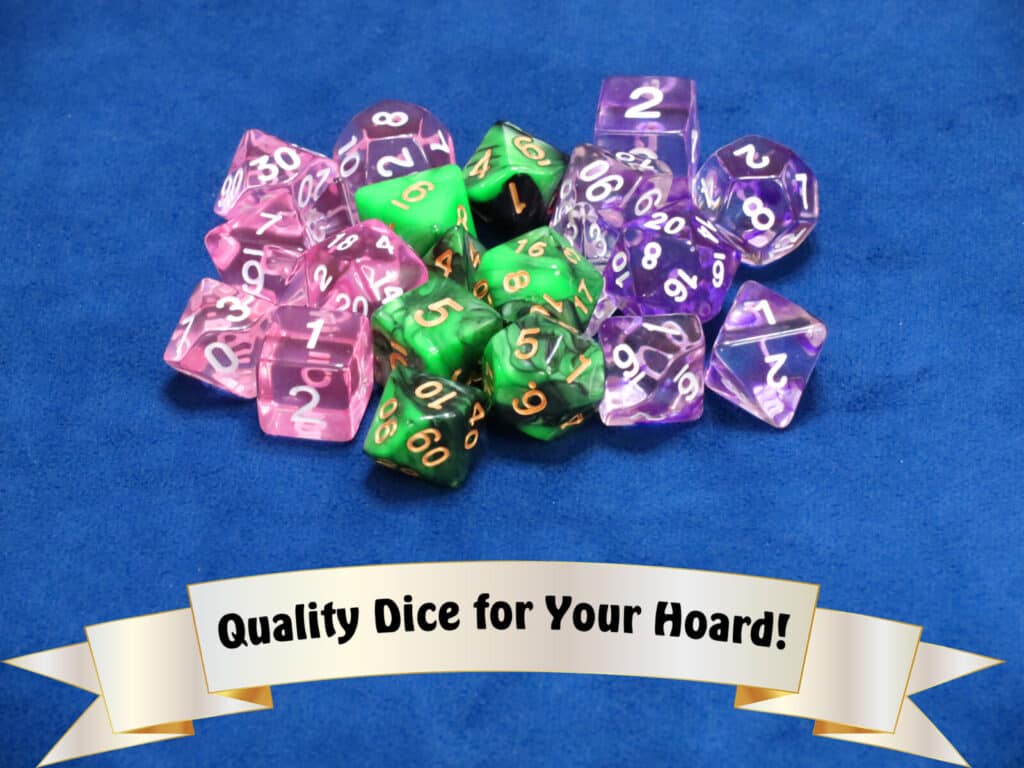Dungeon Delver is a player feat in 5th Edition D&D that is clearly aimed for players who have an old school DM from the days where all the campaigns took place in the monster-infested dungeons below the surface…or a modern DM who is all about throwing low level parties into the Yawning Portal or the Tomb of Annihilation.
The dungeon delver feat is a situationally good feat that is good for very old school dungeon diving campaigns loaded with traps, but likely not worth the spend for most larger 5E campaigns that tend to spend way more time out of dungeons than in them.
At first read I was excited about this feat, but the more I thought about it, the more I wondered if my initial instincts were wrong. Let’s deep dive into this feat and see if it’s good, terrible, or somewhere in between.

Breaking Down the Dungeon Delver Feat
The Dungeon Delver feat is very specific in its focus. When it comes to theming there’s no question that this feat focuses on what it says: giving you the capacity to be a better dungeon delver. But does it bring enough to the table mechanically to make it worth the pick?
Let’s start breaking down this feat.
Directly from the Player’s Handbook:
Alert to the hidden traps and secret doors found in many dungeons, you gain the following benefits:
- You have advantage on Wisdom (Perception) and Intelligence (Investigation) checks made to detect the presence of secret doors.
- You have advantage on saving throws made to avoid or resist traps.
- You have resistance to the damage dealt by traps.
- You can search for traps while traveling at a normal pace, instead of only at a slow pace.
PHB. p. 166
At first glance this list of benefits seems like a really solid grouping. And in some ways they are. But a full look of both the forest and the trees starts showing some serious potential cracks.
Benefit #1: You have advantage on all perception and investigation checks when searching for secret doors.
Many people ask the question of when do you use investigation vs perception in 5E, and this benefit takes that question out of the equation while providing a pretty solid boost. Whether your DM prefers perception, investigation, or seems to randomly jump between the two, with the Dungeon Delver feat takes that out of the equation.
The advantage goes to both when looking for secret doors which is powerful in a very, VERY niche way. The trouble is that there’s a very good argument for it being too niche.
Besides, in a low dungeon campaign it’s likely an entire party will search each room thoroughly, meaning multiple perception and investigation roles that are likely to find anything hidden. Especially if you have a rogue, ranger, or monk with a ridiculously high passive wisdom score.
Benefit #2: You get advantage on saving throws to both resist and avoid traps (while implied as a dungeon thing, the feat simply states advantage meaning you’re still good for trap-related saving throws outside the dungeon, as well).
This is a solid benefit in trap-heavy games. The thing is, most games I’ve played have some traps sparsely in the beginning, and don’t appear nearly so much in mid to late game since too many traps tend to make things grindy and just don’t bring fun with the challenge.
Also characters with a 20+ passive perception are going to wreck a trap-heavy dungeon anyway.
That said, it’s not a bad benefit, especially in a dungeon-heavy campaign. This also applies to traps in non-dungeon areas which can make it slightly stronger in some campaigns.
Benefit #3: You enjoy resistance to trap-related damage.
This is probably the gem of benefits. While ideally you would be able to find traps and just avoid them, the fact that there’s resistance to damage related to traps can be incredibly powerful, especially since it’s just trap damage. No restrictions. So piercing, crushing, magic, psionic – if it’s from a trap you have resistance.
Won’t come up very often, but it is likely to be a huge benefit when it does. However, like every other point on here, it’s a very niche benefit that is only going to pop up every so often during a regular 5E campaign.
Benefit #4: You can search for traps while traveling at a normal pace, as opposed to the “slow pace only” rules in the core books.
Although some DMs from the old days might run with this rule of slow speed vs normal speed, but it’s actually not a rule and therefore not a benefit. Jeremy Crawford has confirmed that this benefit referred to a play-tested rule that was NOT included in the final release of the 5E Player’s Handbook.
Source: Jeremy Crawford Twitter
5E Classes That Should Take the Dungeon Delver Feat
There are two lines of thought on this. One is that dungeon delver is best added to a high dex character to make them nearly impossible to hammer with a trap, or classes with high wisdom to search for dangers or hidden treasures.
The other line of thought is that this is great for classes that traditionally don’t have high perception (wisdom) or dex, since this gives them advantage to spot traps, avoid them, or minimize the damage when all the dice rolls fail.
Because of this, it’s hard to break down this feat by classes as there are good arguments for both camps in this case.
Generally speaking, when looking at this feat as something that meshes well with a class instead of working as an emergency safety net to save you from yourself, you’re looking at a handful of Dexterity or Wisdom based classes.
Which means we’re talking about the classic scouting classes (druids, rangers, and rogues) and the wise tanks (clerics). These classes will be incredibly hard to hit with dungeon traps or to have miss hidden doors.
Is this worth more than an ability score increase in a non dungeon-crawling campaign? Probably not, but these are classes that can make the most of these benefits when the next dungeon does come along.
5th Ed Classes that mesh well with take the Dungeon Delver Feat:
- Rogue
- Ranger
- Cleric
- Druid
Does 5E Dungeon Delver Work as a Safety Net?
If you’re in one of those rare campaigns that isn’t a pure hack and slash dungeon crawl and yet sees a LOT of time in dungeons with traps, secret rooms, and other similar hidden gems for the party to discover and deal with, then there might be scenarios where this feat works as a safety net to make sure that high-stat rolled character doesn’t die via spike pit or walk by every hidden door that has a magic item he/she might actually be able to use.
In most campaigns this is too situational to use for a safety net. However, in those campaigns where there is still a lot of dungeon exploring, this could be a way to save those low dexterity characters from constant damage or certain doom and give a fighting chance for even a barbarian to catch the occasional secret room in between rage sessions.
This is a viable way to use the feat since in an old-school dungeon it gives all kinds of benefits, but you will want to talk with a DM to see if the rate of dungeons/traps is normal or going to uptick/downtick before making a final decision on whether or not to take this feat.

Are There Classes That Should Never Take Dungeon Delver
Two jump to mind: wizards and monks. The reasons are fairly simple. Aside from the fact that wizards almost always want more feats than are actually available, wizards have spells like feather fall or fly that can deal with a wide array of common traps. In other words, the spell list should have built-in protections.
Also wizards should never be taking point so for traps that don’t automatically hit an entire room, they shouldn’t have to take the hit. That’s what rogues, rangers, and tanks are for.
Because of this I can’t think of a situation where it makes sense for a wizard to take this feat.
The monk might seem contradictive since they have high dexterity and high wisdom. However, the argument here is that because of these high schools and high passive perception, they don’t need the boost to spot hidden secret doors or hidden traps.
They’re likely to just notice them. On top of this, there are class features that allow monks minimize or eliminate fall damage or to get help on saves.
They have a lot of built-in traits that just make this feat less useful to them than it otherwise would be. Monks are also just squishy enough they will give up the front scouting position to either the tanks or the stealthier rogues/rangers, which also keeps them out of the firing line to some extent.
Classes that should never take dungeon delver:
- Monks
- Wizards
Final Feat Grade for Dungeon Delver 5E
Dungeon Delver Feat Grade: C+
Is the 5E Dungeon Delver Feat Worth It?
This was a very hard feat to grade. A C+ isn’t that accurate a measurement, in part because of the nature of different 5E D&D campaigns. In a pure hack and slash dungeon crawl through the Tomb of Annihilation, or the Tomb of Horrors for really old school players, dungeon delver isn’t just a good feat to have, it’s virtually mandatory.
On the other hand, for the average 12 session or half year or one year campaign where dungeons come up only every so often, and most DMs leave out basic traps because they’re grindy versus challenging or fun, and then you’re left with a feat that is almost certainly an F based on how little you’d use it compared to anything else you could take.
For example, in the 4-year 5E campaign I ran for my table when I look over notes, so in nearly 100 sessions (we met every other week) this would have come up maybe 7-8 times. If I really stretched it, it could have applied to maybe 20ish but since there weren’t traps in those locations this feat wouldn’t come into play with how things were set up.
Because of that, it’s a feat that just doesn’t get used whereas an ability score or 5E feats like Alert or a fighting based one (Crusher and Defensive Duelist come to mind) would be used far more often. The lack of use counteracts the benefits it gives in most campaigns.
If you’re doing a “Nothing but dungeon crawling” old-school style of session with a Dungeon Master who is offended at being called GM instead of DM, then the dungeon delver will be mandatory and an easy A+ score. During a more conventional campaign, this is used so little that it could arguably be a D or F score.
The campaign type makes or breaks this feat.
While the style of campaign affects other feat grades, this one lives or dies on whether or not the game is a hack and slash dungeon crawl or not. In those campaigns it’s probably mandatory. For any other type of campaign it’s probably a waste of an ability score increase.
Dungeon Delver Feat FAQ
Is the 5E dungeon delver feat underpowered?
While effective for pure hack and slash dungeon crawls like Tomb of Annihilation or Tales from the Yawning Portal, the dungeon delver feat is far too rarely used or active in order to be considered a strong feat. In some campaigns it would virtually never come up for use, neutering the benefits that would otherwise be decently strong.
Is dungeon delver worth it?
Only in a hack and slash dungeon crawl. For a normal full-story 5E D&D campaign dungeon delver is an underpowered feat that is far too situational to actually be effective compared to an ability score boost or other feats.
How would you fix the dungeon delver feat in 5E?
There are many opinions from experienced players and DMs on how to fix the dungeon delver feat. Two common suggestions are to add a +1 INT or WIS stat boost, and/or a trait that makes them likely to spot valuable loot where others see nothing. Having both of those could add flavor, versatility, and mechanics to make this a much higher regarded feat.
Other DnD Articles You Might Enjoy

Proud to embrace the locally created moniker of “Corrupt Overlord” from one of the all time great Lords of Waterdeep runs, Shane is one member of the Assorted Meeples crew and will be hard at work creating awesome content for the website. He is a long-time player of board games, one time semi-professional poker player, and tends to run to the quirky or RPG side of things when it comes to playing video games. He loves tabletop roleplaying systems like Dungeons & Dragons, Pathfinder, Werewolf, Fate, and others, and not only has been a player but has run games as DM for years. You can find his other work in publications like Level Skip or Hobby Lark.

